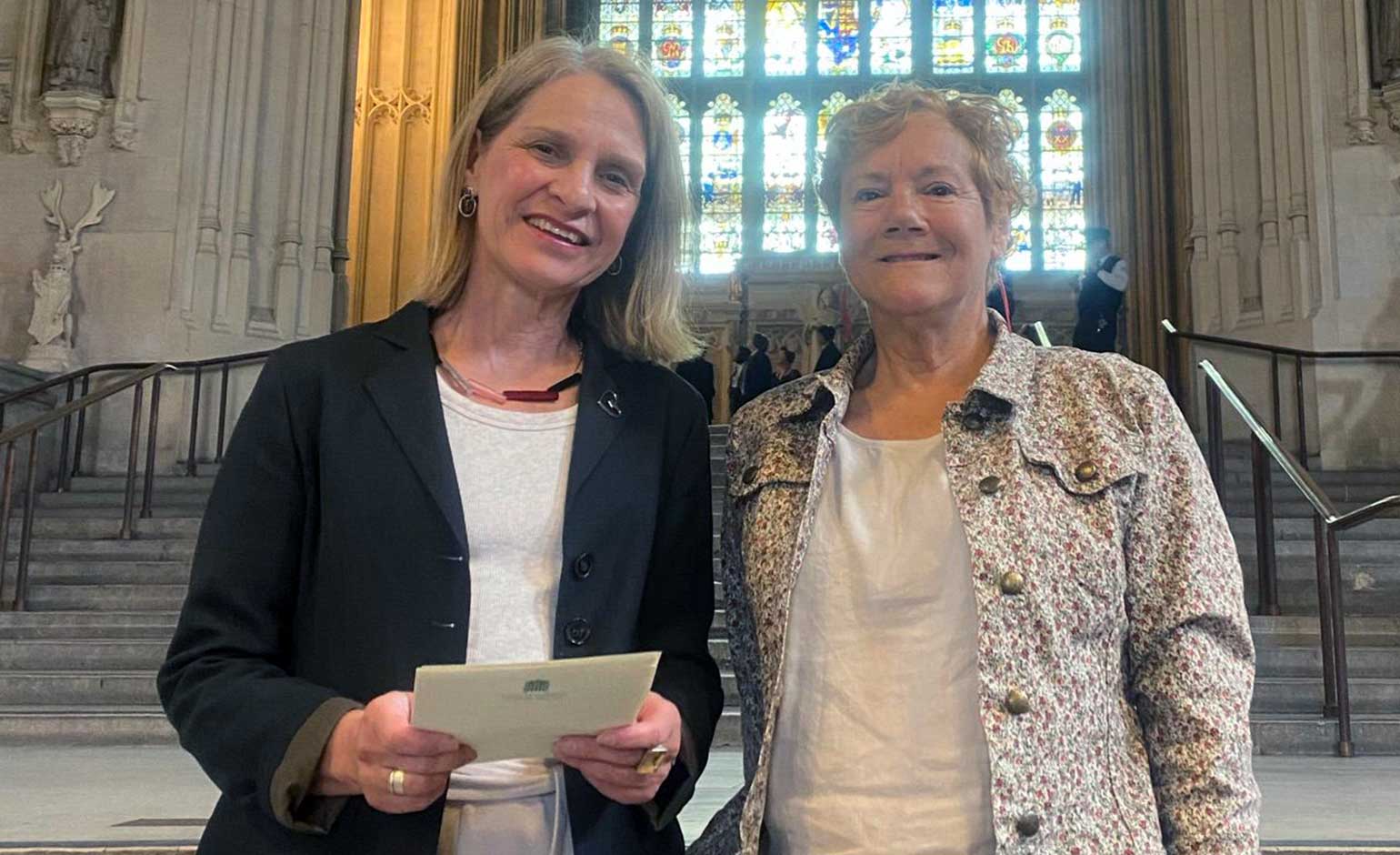Bath’s Liberal Democrat MP Wera Hobhouse has reiterated her support for assisted suicide during a debate in Parliament on changing the existing laws.

Wera Hobhouse MP and Pauline Carroll
Locally, a campaign on assisted dying has been spearheaded by a retired Bath nurse, Pauline Carroll.
Ms Carroll runs the Bath and Bristol Dignity in Dying campaign group and worked as a district nurse for eight years where she witnessed the suffering and pain of many terminally ill people.
The debate stemmed from a petition which calls on the Government to “legalise assisted dying for terminally ill, mentally competent adults”.
With the petition securing over 150,000 signatures, MPs from across the House supported the campaign group’s calls to change the law.
The Government has reiterated its position that “any change to the law in this area is a matter for Parliament and an issue of conscience for individual parliamentarians rather than one for Government policy.”
A YouGov poll last year found that 90% of people surveyed supported assisted suicide in certain cases.
Assisted dying is currently banned in England and Wales under the 1961 Suicide Act, which carries a maximum jail term of 14 years.
Speaking after the debate, Wera Hobhouse MP said: “I have listened to many deeply moving accounts of dying people forced to endure unnecessary suffering at the end of their lives.
“I firmly believe that terminally ill people deserve the option to die with dignity in this country.
“Since I was first elected to Parliament in 2017 I have spoken with a number of people about this extremely complex issue.
“Having given it much consideration, I believe that it is right that terminally ill people can die with dignity and by choice in the UK.
“I support Dignity in Dying’s campaign and believe that Parliament must address the blanket ban on assisted dying as a matter of urgency.
“Dignity and Dying’s commitment and passion for the cause is commendable and I am in awe of their persistence and dedication.”
Pauline Carroll said: “Merely holding the debate is a sign of progress and I am grateful to Wera for her contribution.
“However, it was frustrating that too many poorly informed contributors believe that this is all about costs and that we would have the ability to enable pain-free, respectful deaths if more money were allocated to palliative care.
“These myths stand in the way of the compassionate desire to ease the departure of those who are not suicidal, but who are terminally ill and therefore forced to suffer a most unpleasant and protracted death.”



